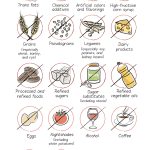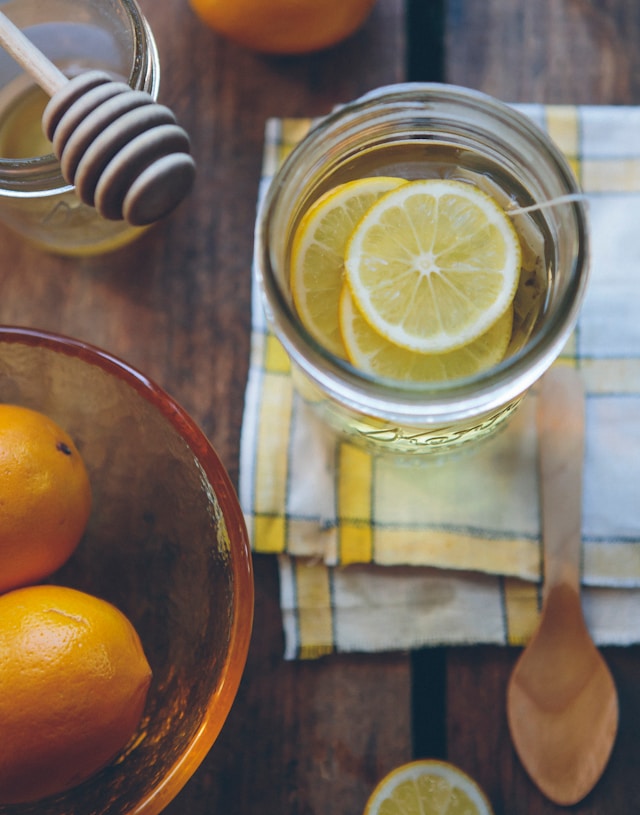Use this guide to understand why you bloat after eating and what natural steps you can take to fix it. Go here if you’d like to understand how digestion works (includes tips for improving digestion).
Proteins
Bloating after non-plant protein
Bloating within 2 hours
What you ate is probably still in your stomach so it’s possible that your stomach hasn’t churned and broken the food down enough for it to move to the next stage of digestion in the small intestine.
Things to try
Something acidic like apple cider vinegar or lime juice. Taking digestive enzymes can also help because they can help digest what’s in the stomach or signal the body that it has digestive enzyme support to break down food in the next stage of digestion.
Bloating after 2+ hours
Your food has likely entered the small intestine area and is is need of digestive enzymes to be further broken. This suggests that your body isn’t secreting enough protein digesting enzymes called proteases. One way you can test this is by taking a digestive enzyme when you next eat protein.
Things to try
Digestive enzyme with protease enzymes. I recommend digest gold or the pancreas glandular product from allergy research.
Bloating after plant protein
We recommend the same things that are in the “Bloating after non-plant protein” section but want to emphasize that most plant proteins contain compounds that inhibit your pancreas and body from secreting enzymes. Plant proteins (and grains) often contain something called phytic acid that not only inhibits enzyme creation but also make it more difficult–in some cases they block–the absorption of nutrients and minerals.
This may be why you feel like your digestion slows or you feel more bloated when eating plant proteins like beans.
Carbs
There are actually different kinds of carbohydrates your body can break down.
Starches
There are starches which are molecularly the most complex and requires the use of amylase enzymes which your pancreas secretes. Carbs like sweet potatoes, green plantains, and grains are typically composed of starch.
Maltase
Starches get broken down into smaller molecules like maltase which gets broken down by enzymes in your small intestine.
Sucrose
Sucrose which is found in plants, mainly sugar cane and sugar beet is broken down by the sucrase enzyme found on your small intestine cells.
Fructose
Fructose which sweetens fruits is a molecule the body can directly absorb without having to break it down into something similar.
Glucose
The end state molecule the body produces and uses after all enzymes have done their work is glucose which the body directly absorbs.
Things to try
If you struggle digesting complex carbs and grains, we recommend a digestive enzyme with amylase enzymes like Digest gold or the pancreas glandular product from allergy research. Keep in mind that grains contain enzyme inhibitors so that may be the cause of your bloating. To test, eat non grain carbs for a few days and see what happens.
If you struggle digesting fruits then your body may not be able to absorb the amount of fructose you’re eating. Issues with fruits might also mean your small intestine doesn’t have enough sucrase enzymes for the amount of fruit you’re eating. Reducing the amount and quantity of fruit you eat will likely be key.
Note: Fructose isn’t harmless when eaten in large quantities.
Fats
Our main recommendation is to use a digestive enzyme that has lipase. Some people need more lipase then others so a dedicated lipase enzyme like Lypogold might suit you best.
If you struggle eating fats consider reducing the amount of fats you eat to reduce the amount of lipase supplement you’ll have to take or your pancreas will have to secrete.
Dairy
Digestive issues or sensitivities with dairy could be due to lactose or the protein component in dairy, casein. Several people lose the ability to digest lactose as they age and some bodies are sensitive to the protein casein.
Things to try
There are digestive enzymes that contain the enzyme that breaks down lactose, lactase. We like Diary Assis and lacto from enzymedica.
Regular digestive enzymes with protease will help break down casein. Some people may be sensitive to casein because they’re body doesn’t completely break it down.
Gluten/Bread/Wheat
Several people experience body reactions and bloating when eating wheat based products. A resource for understanding why wheat can be problematic is here.
One thing to keep in mind is that wheat products and foods contain digestive inhibitors and phytic acid.
Things to try
True sourdough bread which is flour that was fermented with sourdough/wild yeast for 3+ hours reduces the amount of gluten and phytic acid in the final wheat product. Some people can tolerate sourdough bread just fine.
Gluten enzymes
Some people still have issues with sourdough bread which may be a result of incomplete gluten digestion. There are enzymes like GlutenEase from enzymedica that help breakdown the gluten molecule. You may find that your symptoms reduce or disappear with gluten enzyme support.
We don’t recommend eating wheat on a regular basis unless its sourdough bread. Even with sourdough bread we recommend you carefully watch if you’re able to tolerate sourdough bread with zero issues. If you still have issues, consider cutting wheat out completely or only eating it as a once in a while treat.




